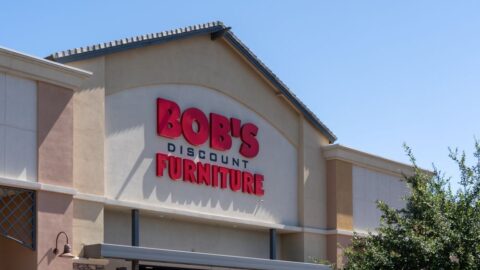After closing its five stores in response to COVID-19 orders, Rent the Runway is shutting them permanently, said President and COO Anushka Salinas in an interview with CNBC. While the company is leaving its locations in Chicago, Los Angeles, San Francisco and Washington, D.C., the former New York City flagship will become a drop-off site for returning items.
On March 27, Rent the Runway laid off its entire retail staff during a Zoom call, offering no assurance that the jobs would return, according to a report in The Verge. “We have no visibility into when or if we will be able to reopen our stores. As a result of this, all retail roles are being eliminated,” an unnamed executive told employees.
Rent the Runway’s decision to permanently exit brick-and-mortar retailing continues its plan to drive down expenses. At the beginning of the pandemic, CEO and Cofounder Jennifer Hyman cut costs by 51%, raised additional financing and scaled back capital outlay by shifting from buying merchandise to a revenue-sharing consignment model, according to a July 2020 article in The Wall Street Journal.
Founded as an e-Commerce business in 2009, Rent the Runway did not open its first retail location until 2014. A primary reason Rent the Runway added stores and built a network of physical drop-off locations was to make it easier for customers to return merchandise. Rent the Runway has forged drop-off arrangements with companies including WeWork and Nordstrom. It also partnered with West Elm to add décor and bedding to its merchandise collection.
Rent the Runway operates within the circular economy, a model in which consumers can reduce waste and lessen environmental harm by resale or reuse. It offers designer apparel and accessories for rent as a monthly subscription, or four- to eight-day rentals for a single occasion.
According to ThredUP’s 2020 Resale Report, the growth of the secondhand market will far outpace traditional retail in the wake of the pandemic: it’s projected to grow by 69% from its 2019 baseline through 2021, while the total retail sector decreases by 15%, according to research conducted in April 2020. In addition to driving consumers online, the pandemic has prompted consumers to rethink their spending patterns, with 79% planning to reduce their apparel budget in the coming year. As they tighten their belts, 80% of consumers say they are open to buying secondhand merchandise, and two-thirds of consumers who have never resold their clothing will consider it.












